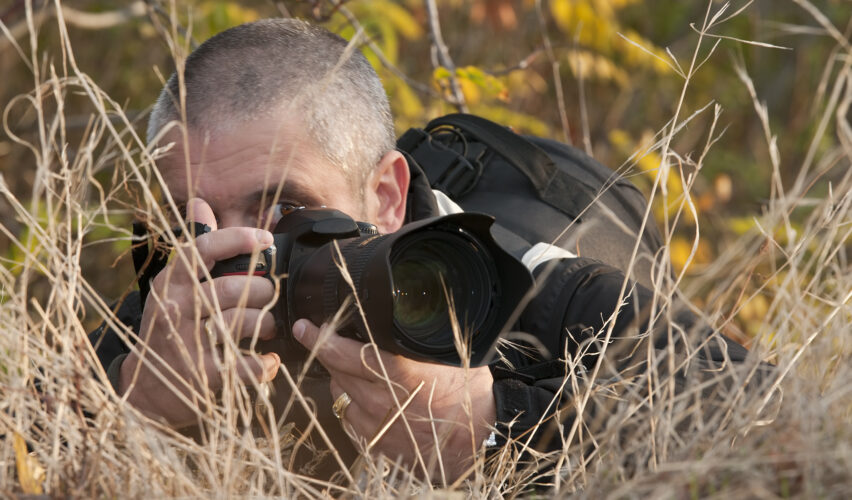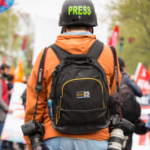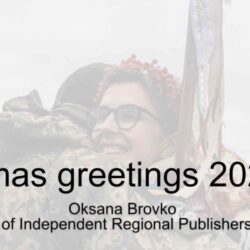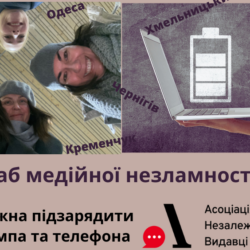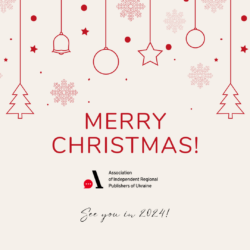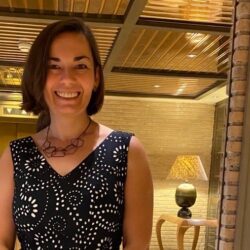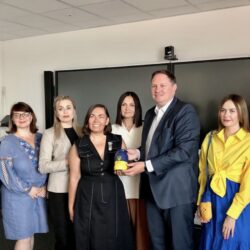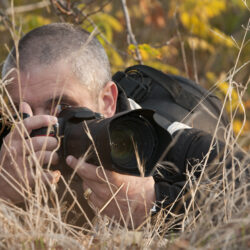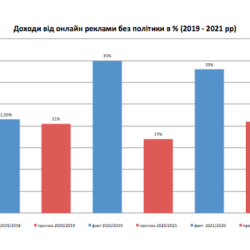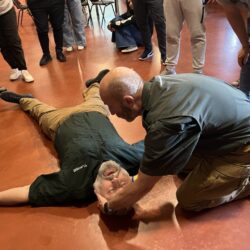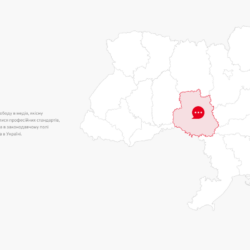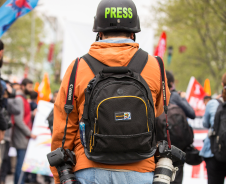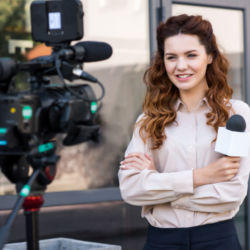To be in a place where you are awaited. To document, to show the world the truth, together with all Ukrainians to boldly pave the way to our victory. These difficult tasks, taking into account all the military challenges, are facing the journalists. Society cannot do without hot topics and coverage of events from the front line or from the occupied and liberated territories.
Insuring journalists is an extremely important aspect of keeping them safe and protected while in particularly dangerous areas. Understanding all the risks media workers face during wartime conflicts, the International Insurance Fund for Journalists offers perfect insurance solutions to protect health and life.
This initiative was launched in May of last year and is currently being successfully developed by six public organizations: “Suspilne” Foundation, Association “Independent Regional Publishers of Ukraine” (AIRPU), IMI, “Detektor Media”, Centre for Democracy and Rule of Law and IRRP. During this time, 48 media workers took advantage of the opportunity to insure their health during trips to dangerous regions. From the end of July, it will be possible to apply for participation in the program again.
What opportunities are available for Ukrainian journalists (including regional ones), who and to what extent can insure their own health and life, how to prepare for work in hot areas? We are talking about this in a question-and-answer format with Oksana Brovko, executive director of AIRPU.
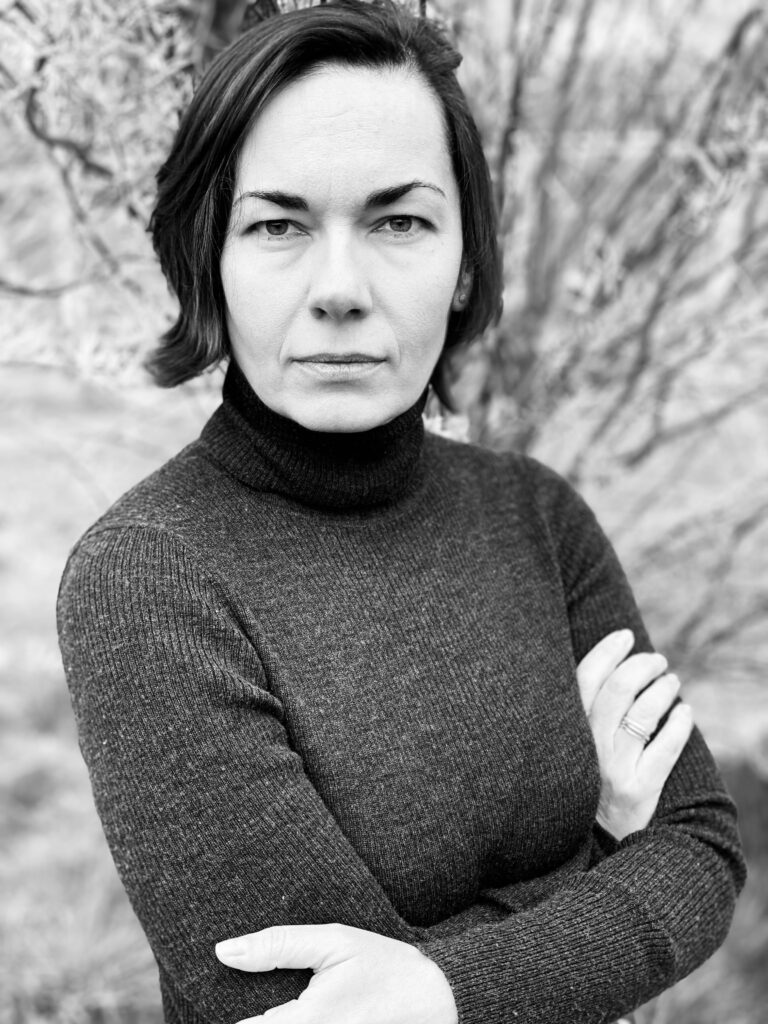
— Hello! Oksano, insurance is an extremely important initiative for Ukraine, because until last year, our media workers did not have such an opportunity. How did you manage to implement the idea?
— This is truly a unique experience for Ukrainian media. International insurance programs have long been available to foreign media. But this has never happened in Ukraine. After 2014, there were statements at the state level, from insurance companies that wanted to implement such an idea. But there were no developments in this direction. No fair program to insure journalists has been proposed at the state level. And we succeeded! Thanks to the important support of our partners, we are able to protect as many media workers as possible.
— Who can use the offer? Is it only for journalists or other members of the editorial team?
— Journalists, videographers, editors, photographers of independent Ukrainian media who go on an official business trip to war zones can get insurance. And also – to liberated territories, border territories with Russia and Belarus, front-line territories. They are obliged to have means of protection. Priority is given to those who have completed safety training and first aid courses.
— For what period can you insure and how to do it?
— Currently, we can organize insurance from 1 to 20 days for a journalist, videographer, editor, photographer who are members of the same team going on a business trip. There is no limit on the number of participants from one team.
The application can also be submitted online by following the link. This must be done no later than 36 hours before departure.
We work openly and decisions on each application are made by voting by an independent body of the project – the Coordination Council. In case of approval of the application, our coordinators contact the applicants and communicate all the details. If you are an honest media, work according to professional standards and adhere to the Code of Journalistic Ethics and have submitted all the necessary documents, your application will definitely be supported.
— Which documents must be submitted?
— There are fundamental points in the application: you must upload a travel order, your journalist card, and accreditation (if you are going to a war zone). The better the completed application, the fewer clarifying questions our coordinators will have and the faster the journalist or team will receive an answer from us.
— And what exactly does the insurance cover, and in which regions of Ukraine? How much are you ready to compensate for the expenses?
— We cover travel insurance to the following regions: Odesa, Zaporizhia, Kherson, Mykolaiv, Luhansk, Donetsk, Kharkiv, Dnipropetrovsk, Sumy, border territories of Kyiv and Chernihiv regions.
Insurance coverage – up to USD 100,000 for reimbursement of medical expenses in case of injury in the declared territory and in the period specified in the application. Therefore, it is important to correctly indicate the places where you are planning a business trip. In case of the death of a journalist, the family receives 100,000 US dollars.
— What to do if a journalist or another person from the editorial team is injured?
— In case of an insurance event, you or someone close to you can call our coordinators or directly to the insurance company. Each group that goes on a business trip is assigned to one of our coordinators, who is available 24 hours a day. So you will have guidance and support. This insurance is to cover costs. On-site medical assistance is not provided for this type of insurance.
So, if an insurance accident happens to you, the plan of action is as follows: first of all, take care of your own safety and get the necessary help on the spot. When you are already in relatively safe conditions, inform either the insurance company directly or your coordinator about what happened. And then you submit documents for reimbursement of medical expenses to the insurance company.
We are not an insurance company, we do not provide insurance services, we strive to help Ukrainian media workers to feel safer in war conditions and take care of the most effective and convenient communication.
— What non-insurance cases should journalists know about? What will not be reimbursed for?
— The insurance does not cover some cases, such as damage by biological or chemical materials, injuries due to a nuclear reaction. Also, you cannot become a participant in the program if you are a member of the Armed Forces of Ukraine. Intentional actions leading to danger (except when trying to save human life or as part of one’s job as a journalist) are also not covered. The same applies to those persons who were under the influence of alcohol or drugs. This is a generally accepted list of most foreign insurance companies.
— Have there been any insurance cases in your practice? Which exactly?
— All 48 journalists, whom we managed to insure during the past year, did not have any insurance cases. At the same time, those media workers who visited war zones had the opportunity to feel safer, having insurance with them and understanding that in case of need, there will be financial compensation.
— How long will the program work and can we count on its permanence?
— Currently, the project will last till the end of this year for sure. But, taking into account the urgency and importance of the initiative, we count on a long-term partnership.
— Can one journalist or a team use the opportunity to insure themselves several times in a row?
— Yes, of course, we have no restrictions on the number and frequency of applications.
— Perhaps there are any special wishes for media workers who plan to insure their health and life?
— After the end of the insurance and your return to the newsrooms, we are waiting for the links to the photo/video/text content produced during your business trip. When publishing/distributing content, we ask that you refer to our project.
— Thanks to whom and which partners such an ambitious project can succeed?
— We managed to start the insurance of journalists thanks to professional cooperation with WAN-IFRA, the world’s specialized media association, of which AIRPU has been a permanent member for many years.
This year, we were able to restore the project thanks to the support of ECPMF, within the framework of the Voices of Ukraine project. In Ukraine, it is administered by us, the AIRPU team, and of course all the teams of the Foundation’s founders are involved. This is an excellent example of effective cooperation between colleagues to protect media workers during wartime.
Any questions left?
Contact us and find more information about the project on Facebook.
Or send a message – [email protected], Tetiana Avramenko.
If you intend to support the project so that more media workers can feel safe while doing their work, we will be happy to cooperate and look forward to your proposals.
The interview was recorded by Natalya Burlaku.
